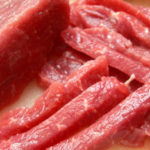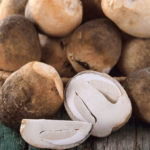Foods You Shouldn’t Wash
Chicken
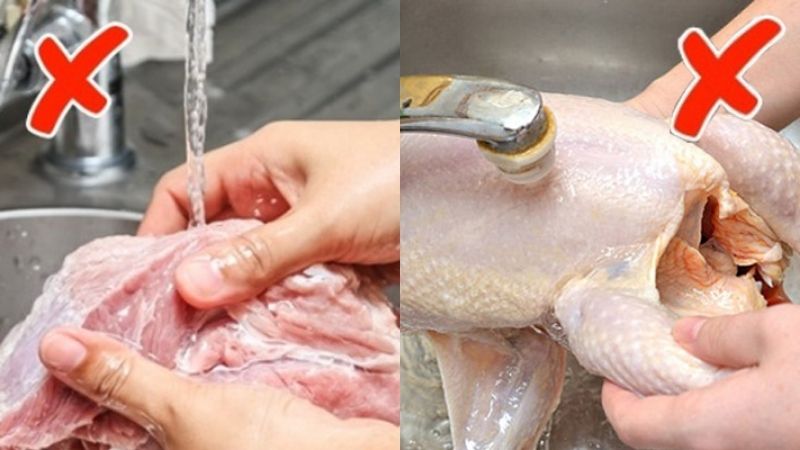 Don’t wash chicken before cooking
Don’t wash chicken before cooking
It is not recommended to wash raw meat, including pork, beef, veal, lamb, and especially chicken, before cooking. You may think that washing will clean the meat, but in reality, bacteria will be killed at high cooking temperatures.
Washing chicken, in particular, does not guarantee the removal of all bacteria, and it may even spread bacteria like Salmonella, which causes intestinal infections, around your kitchen.
Instead, choose fresh meat that is hygienically displayed and stored. Before cooking, wipe the surface of the meat with a clean paper towel.
Boiling meat in water to clean it is also not advisable, as the high temperature causes the protein on the surface of the meat to coagulate, trapping dirt and preventing it from being rinsed away.
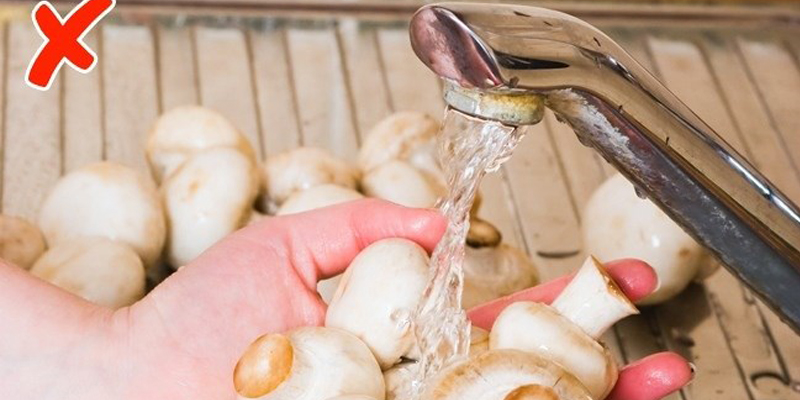
Mushrooms
You might think that mushrooms, being prone to bacterial contamination and food poisoning, need to be washed before cooking. However, soaking and rinsing mushrooms will cause them to absorb water and spoil faster.
The key to safe mushroom consumption is to choose fresh mushrooms and store them properly. A quick rinse under clean running water just before cooking is sufficient; you can also gently wipe them with a damp paper towel if needed.
Pasta
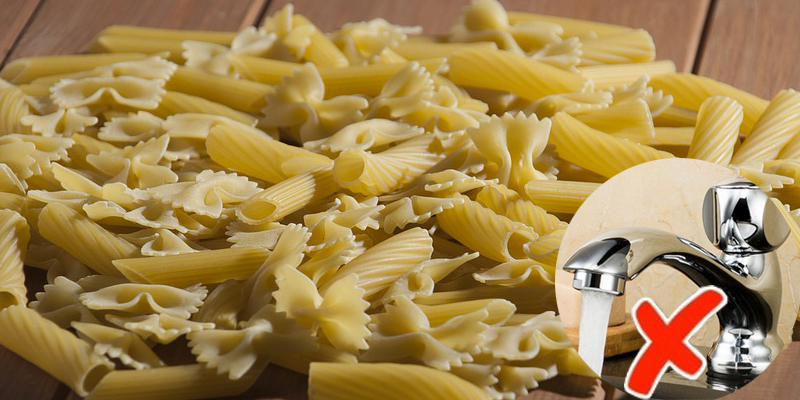
The starchy surface of pasta is meant to absorb the sauce, enhancing the flavor of the dish. Washing pasta will only reduce its ability to do so, resulting in a less tasty meal.
Foods You Should Wash
Thin-skinned Fruits and Vegetables
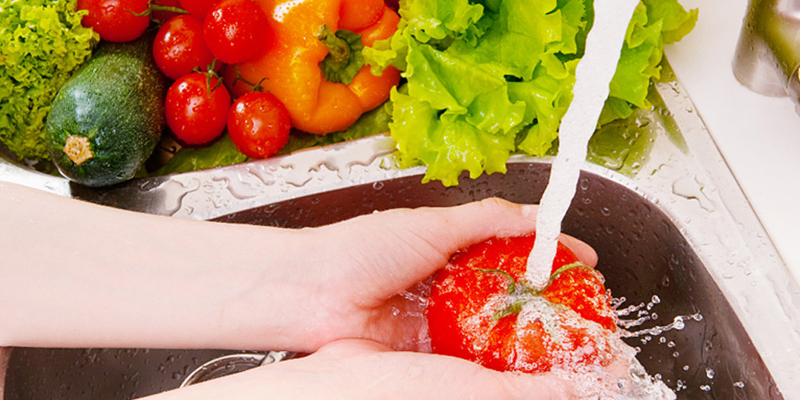
Whether you plan to eat them raw or cooked, it is best to wash thin-skinned fruits and vegetables to remove dirt, bacteria, and pesticide residues.
Fruits with Peels
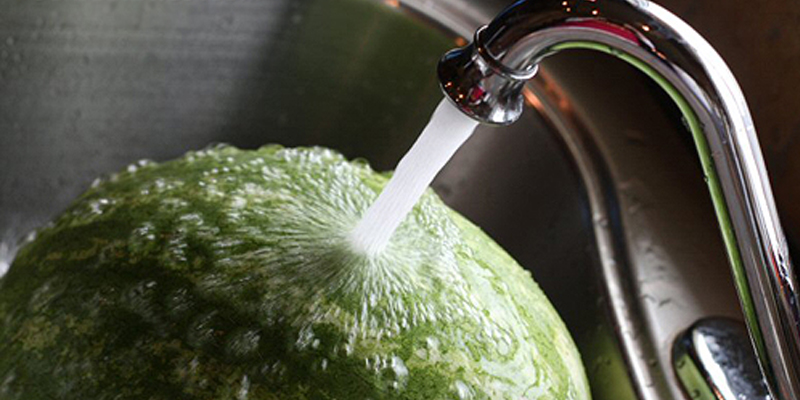
Even if you plan to peel a fruit, it is important to wash it first. Bacteria and dirt can be transferred to the fruit’s flesh during the peeling process, so give it a quick rinse before you start. This applies to fruits like watermelons, bananas, avocados, and jackfruits.
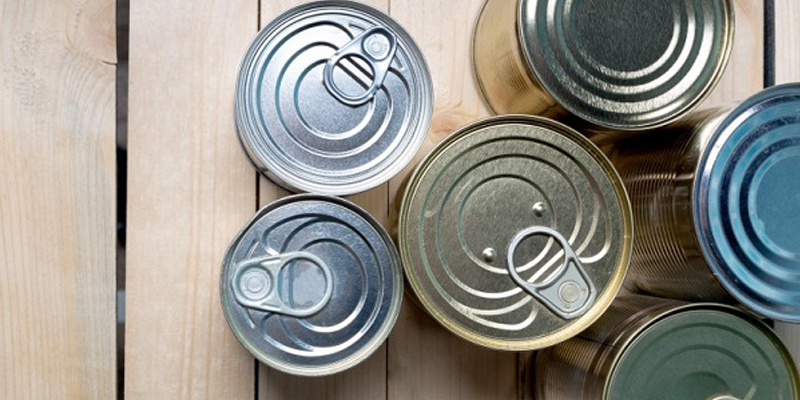
Canned Foods
While the contents of a sealed can are unlikely to be contaminated, the can itself, especially the lid, can harbor dirt and bacteria. Rinsing the lid and can before opening will help prevent any unwanted guests from joining your meal.
, dried bamboo shoots, and vegetables may not always meet safety standards during processing, packaging, and transportation. Therefore, it is advisable to soak and rinse them before consumption or cooking.
You may think that washing dried snacks like fruits and vegetables will ruin their taste and appearance, but it is worth it for your health. After washing, you can dry them in the sun or in an oven.
You may already follow these guidelines, or you may be learning them for the first time. Either way, sharing this information with your loved ones will help ensure their health and safety, so please spread the word!
For more information, visit: giadinh.vnexpress.net
Expert Advice on How to Identify Unsafe Food
Are you aware of how to inspect food for possible safety risks? With the presence of food products from unclear origins and chemicals used as preservatives, it is important to be vigilant in selecting food items for our families. Join us in the Food Tips section to take a closer look at how to select safe and healthy food for our families!
9 Delicious Recipes for Making the Best Fried Chicken
Discover the secrets of fried chicken perfection! If you’ve been dreaming of the perfect fried chicken dish, this is the guide for you. We’ve compiled our top tips so you can make restaurant-quality fried chicken in the comfort of your own home. Keep reading to learn more!
Ideas to Choose High-Quality, Nutrient-Rich Mushrooms for Optimal Health
Are you looking to get more nutrition into your diet? Mushrooms are a great option and can be used to add flavor to a variety of dishes. In this article, we’ll provide insight on how to select and utilize the freshest mushrooms in your cooking.

























